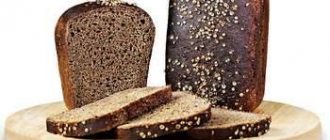Published: 08/16/2017
According to a study conducted by the US Department of Agriculture, the average global population is consuming less sugar than in the previous couple of decades - 94 grams per day or 358 kcal. This is a big number, but you can lower it by incorporating sugar-free diet principles into your diet. Many studies show that eliminating excess glucose not only helps you lose weight, but also reduces the risk of common diseases such as type 2 diabetes, digestive problems, autoimmune diseases and many others.
What foods don't contain sugar but are still filling? Protein - meat, eggs or fish, as well as nuts and other legumes. The time when changing your diet can seem like an ordeal. There may be an increase in appetite and other withdrawal symptoms, but within a few weeks you will see your efforts begin to pay off in spades. High consumption of sucrose causes a mess in the body. Possible hormonal imbalance, lethargy, changeable mood and even insomnia. That's why getting rid of sugar will not only replace empty calories with healthy ones, but will also breathe new strength into you, both moral and physical.
What is a sugar-free diet?
The main principle of this diet is to strictly limit the consumption of products to which sucrose is added both intentionally and in hidden form: lemonades, sweets, sauces. Fruits, sources of natural sugar (fructose), are allowed in moderation. There are many diet options available depending on your preference goals. You can even exclude fruits - this way you will increase the effectiveness of weight loss. An additional advantage is the fact that such a diet does not require calorie counting, since the consumption of semi-finished products is excluded, which is enough to get results.
Let's list the main advantages:
- assistance with weight loss and obesity prevention;
- reducing the risk of developing diabetes;
- a surge of strength;
- mental stabilization;
- reducing the risk of gastrointestinal diseases: irritable bowel syndrome, Crohn's disease, candidiasis and stool disorders;
- stabilization of metabolic processes in the body. Most often it is expressed in its acceleration, which has a positive effect on well-being.
Many people have problems with sucrose addiction. Attempts to eliminate sugar from the diet often end in failure. There are 5 main steps to make this process easier:
- eat more fiber;
- include more protein in your diet;
- eat more healthy fats;
- consume fermented milk products.
- Read food labels at the store carefully, as most people don't realize how much sugar they actually eat and drink.
The glycemic index of foods is an important characteristic of the diet.
What can you achieve within 30 days without sweets and starchy foods?
How much weight can you lose in a month if you don’t eat bread or sweets? Typical weight loss is 2–3 kg (assuming no daily fried food intake). Adding physical activity (walking, running, cycling) will help increase your weight loss effect.
The beneficial result of a diet without sweets and starchy foods is a change in taste for the better. The taste buds will suddenly stop being irritated by artificial sweet tastes and will become aware of natural sweetness (e.g. from fresh fruit).
What is the glycemic index of foods?
Why is high blood sugar bad for you? Sugar can change the intestinal microflora in such a way that intestinal permeability increases, enhancing the absorption of all substances. This promotes overeating and obesity, causing many negative changes in the body. Eating foods with a low glycemic index helps balance blood glucose levels throughout the day, preventing insulin resistance, protecting against fatty liver and heart disease, helping you control your appetite and keep you alert throughout the day. The glycemic index (GI) is “a measure of the effect of food on blood glucose levels after consumption.” The higher the glycemic index, the more rapidly food turns into sugar and vice versa. All carbohydrate foods have a high glycemic index, but this does not mean that, say, bran bread is harmful to health. This is primarily influenced by the degree of processing of the products. So, semi-finished products will be much more harmful than raw products. Also from this point of view, the following are considered harmful:
- potato;
- bread made from premium flour;
- sweetened fermented milk products;
- sweetened drinks: lemonades and juices;
- all types of table sugar, no matter: cane or beet.
Excluding natural sweeteners (honey, syrups, molasses) from your diet should be based on your health. Be careful with dried fruits and starchy vegetables (beets, pumpkin, potatoes).
Medical myths. All about sugar
Comment from Lakhta Clinic. With this article we are opening a new section on our website. It is planned to translate and publish materials posted freely on leading English-language medical information resources. As the subtitle suggests, we will talk about the latest scientific data regarding common medical myths and prejudices that exist in the public consciousness today. And although the very logic of the development of science does not allow any information to be considered the ultimate truth (because scientific information is constantly updated), we will still keep our finger on the pulse and, together with you, revise our ideas in a more rational direction. We will try to preserve the author's style as much as possible, reserving, however, the right to shortening and minor editing.
Let's talk about sugar today; Let's discuss some misunderstandings associated with the sweetest nutritional problem.
At the time of publication, it is Sugar Awareness Week. With this in mind and figuratively speaking, let's take a ride to Sugar City - in the Truth van along the Lane of Delusions.
Centuries ago, this crystalline sweetener found its way into our foods, drinks, intestines and minds. To this day, it causes a lot of controversy, and attitudes towards it are very contradictory. Despite the fact that each of us has an idea about sugar, let's start with a little explanation.
What is sugar?
Sugar is a soluble carbohydrate, an organic compound whose molecule consists of carbon, hydrogen and oxygen atoms. Examples of other carbohydrates include starch and cellulose, which is a structural component of the walls of plant cells.
Simple sugars, or monosaccharides, are glucose and fructose. Granulated sugar is a more complex compound known as a disaccharide or sucrose; its composition includes both glucose and fructose. Our digestive system breaks down the disaccharide into monosaccharides. However, this sugar chemistry does not explain the insidiousness of sugar. This substance has gained a bad reputation because its delicious taste is combined with some harmfulness to our health.
- Sugar is addictive
Some experts believe that sugar is one of the substances to which addiction and dependence can form. In particular, the authors of a controversial review published in 2017 wrote:
“Data from animal models show a significant association between sugar intake and drug-like effects, including overeating, cravings, decreased tolerance, withdrawal, cross-sensitization, cross-dependence, and opioid reinforcement effects.”
However, let's not forget that this study was focused on animals and was conducted in artificial laboratory conditions. As opponents point out, “it would be a methodological error to extrapolate the results to the human body, since people rarely consume sugar in its pure form and in such quantities.”
Dr Dominic M. Dwyre, from Cardiff University's Department of Psychology, said: 'Although some of the behavior associated with addiction to sugar and other foods does occur, it affects only a small minority of people, mainly those who are obese. However, be aware that sugar can stimulate excess food consumption.”
In a similar vein, Professor David Nutt, Chairman of the Independent Scientific Committee on Drugs and Head of the Department of Neuropsychopharmacology and Molecular Imaging at Imperial College London: “There is currently no scientific evidence that sugar is addictive, although we know that sugar has certain psychological effects that are almost certainly mediated by the brain's reward system."
Thus, remember that health experts do not classify sugar as an addictive substance. This, however, does not mean that it is healthy.
- Sugar makes kids hyperactive
This is probably one of the most common myths about sugar: eating candy makes children run wild and uncontrollable. In fact, there is no scientific evidence that sugar consumption has anything to do with hyperactivity in the vast majority of children.
For example, a meta-analysis conducted in 1995, which was published in JAMA ( Approx. Lakhta Clinics : JAMA - The Journal of the American Medical Association, one of the most authoritative and widely read medical journals in the world), summarized the results of 23 studies presented in 16 scientific articles . The following conclusion was reached:
“…this meta-analysis of studies published to date shows that sugar (sucrose) has no effect on behavior or cognitive performance in children.”
Apparently, many parents may doubt the truth of this conclusion. For those who are interested in this issue, we offer more detailed thematic material. ( note by Lakhta Clinic : for our part, we also recommend our article “Attention Deficit Hyperactivity Disorder”).
- Sugar is the cause of diabetes
Another very common sugar myth is that sugar is the direct cause of diabetes. In fact, there are no direct cause-and-effect relationships between them. One might think that this misconception stems from the natural association between blood sugar levels and diabetes. However, here everything is a little more complicated. Overweight and obesity are risk factors for type 2 diabetes, and consuming large quantities of sugar actually contributes to the development of overweight or obesity. However, sugar is definitely not the direct cause of type 2 diabetes.
As for type 1 diabetes mellitus, dietary factors and lifestyle do not play an etiopathogenetic role.
- Avoid eating fruit if you are on a diet
Fruits are very tasty, also due to the natural sugars they contain. Knowing this, some people find it necessary to exclude fruits from their diet in order to maintain a moderate weight.
It is not right. Fruits contain many health-promoting compounds, including a number of vitamins and minerals, as well as fiber. Eating fruit is definitely necessary; It has been established, among other things, that this element of the diet significantly reduces the mortality rate.
One study, for example, showed that freeze-dried mango (processed by dry freezing, lyophilized - note Lakhta Clinic ) does not have any negative effect on body weight, but, on the contrary, has a positive effect on such an important indicator as blood level. fasting blood glucose. Another study suggests that consuming blueberries improves insulin sensitivity.
For the sake of objectivity, we add that both of these studies were carried out with grants, with the first being funded by the National Mango Committee, and the second by the US Blueberry Council (highbush blueberry).
Draw whatever conclusions you want from this, but keep in mind: fruits are necessary for your body, no one has doubted this for a long time. Eliminating them from your diet to reduce your sugar intake would be a big mistake.
- We must completely stop consuming sugar
Since it is 100% proven that excess sugar in the diet causes serious damage to health, it really makes sense to reduce your consumption of this product. However, there is no point in completely abandoning it.
As noted in the previous paragraph, fruits also contain sugar, but at the same time they only benefit health, so excluding them from the diet would, as they now say, be counterproductive.
In this and many other aspects of our lives, a sense of proportion is key. Considering all of the above, it would be much wiser to give up the habit of excessive consumption of sweetened drinks, especially carbonated drinks, which are associated with a number of negative health effects, including kidney damage, cellular aging, fragility of the hip joints, type 2 diabetes, etc.
Excluding soda from your diet is definitely not a bad idea.
- Sugar causes cancer
Contrary to persistent prejudice, most experts do not consider sugar to be either a direct cause of cancer or even a factor in its rapid spread.
Cancer cells divide quickly and require a lot of energy, and sugar can provide it. Perhaps it was precisely this logic that gave rise to this myth.
In reality, all cells need sugar, not just cancer cells. In addition, cancer cells also need all other nutrients, including amino acids, fats, etc. So the problem is not sugar. According to Cancer Research UK:
“There is no evidence that following a sugar-free diet reduces the risk of developing cancer or increases the chances of survival once diagnosed.”
As with diabetes, there's a catch: high sugar intake leads to weight gain, and being overweight and obese increases your risk of cancer. Thus, although sugar does not directly cause cancer and does not accelerate its development, it does indirectly increase the likelihood of cancer.
Researchers continue to study the links between sugar consumption and cancer. If such connections exist, they are most likely indirect and intricate. Here is the position of the American Cancer Society:
“There is […] evidence that a diet high in added sugars affects levels of insulin and related hormones in ways that may increase the risk of some cancers.”
The study, based on medical data on 101,279 participants, still concluded that “levels of total sugar intake are associated with a higher overall cancer risk,” even after controlling for a variety of other factors, including body weight.
Other authors have found links between sugar consumption and specific types of cancer, such as endometrial cancer and colorectal cancer. However, these connections are not nearly as significant as the myths suggest.
Let's take note
Sugar is an actively studied problem today. Searches like “sugar health” in Google Scholar yield over 78 thousand results. Navigating through such a huge amount of content is very difficult, especially since there is no unanimity of opinion regarding this – again, like any other – scientific issue.
Of course, it is worth taking into account the fact that many of the studies on the health effects of sugar are carried out with money from food industry giants. For example, a review of the evidence on the links between beverage consumption, diet and health was recently published, based on an examination of the results of 88 relevant studies. There were “…clear associations between soft drink consumption, body weight and health problems.” It is characteristic that the authors of the review also considered it necessary to emphasize: “studies funded by the food industry report significantly fewer negative effects than independent studies.”
Although there is a lot of stigma surrounding sugar, some things are certain: Even if sugar is not a direct cause of diabetes or cancer, increased sugar consumption is definitely harmful to health.
The best solution is a sense of proportion.
Based on materials from Medical News Today
Points of Compliance with Other Low-Carb Diets
- If all sources of sugar are eliminated from your diet, you are already on your way to a low-carb diet, since sweet foods provide the body with large amounts of glucose. In this case, fat becomes the main “fuel” for the body.
- When glucose is removed from the body's energy equation, your carbohydrate intake becomes entirely up to you. Grains, vegetables, legumes and other foods are now the main source of carbohydrates.
- The ketogenic diet, an extreme version of low-carb diets, eliminates the consumption of all types of sugars. The main source of calories are fats: meat, vegetable and butter, and so on.
A sugar-free diet is a typical example of a low-carb diet. The amount of carbohydrates largely depends on the individual nutrition plan, but most often is in the range of 50-130 g per day. Reducing them to about zero values will increase the rate of weight loss, but will negatively affect the functioning of the body.
How to give up bread and sweets
There are many methods on how you can stop eating bread and other baked goods and sugar. One of them is to become fed up with forbidden products. You need to eat just enough of them to cause disgust. After such a gluttony, you will no longer want to eat the “forbidden fruit.” However, judging by the reviews of nutrition specialists and nutritionists, the effectiveness of this method is questionable.
After all, everything comes from a person’s head, his desires. No one will force you to give up this or that food unless you want to. Looking to cut out sugar in your foods? Then listen to your body. Understand why you need such efforts, find an alternative to forbidden foods, for example, replace sugar with honey. Only after this will your diet become a joy.
The importance of natural sugars
During a hypoglycemic diet, the body still requires carbohydrates. One source is foods containing fructose. Healthy carbohydrates support the level of physical activity, the process of repairing damaged tissues, and provide energy to the tissues of the body and brain. The whole difference is that we will consume only the required amount. Here are some of the facts you should consider when shaping your diet:
- Dietary fiber contained in fruits and vegetables is not fully absorbed by the body, so you should not take into account their specific gravity as a carbohydrate component of nutrition. They are useful in themselves, but are not any significant source of energy;
- Fiber is essential for maintaining healthy digestive and cardiovascular function. In addition, it allows you to control the feeling of satiety.
- Dietary fiber and fiber are often found in low-calorie foods that are high in vitamins, minerals and antioxidants. These include: leafy vegetables, berries, apples, beans, seeds, avocados and sweet potatoes. Some of these foods contain fructose, which shouldn't alarm you given the treasure trove of nutrients they contain.
- Don't forget to replenish your micronutrient reserves. Pay attention to potassium, magnesium, antioxidants: carotenoids, beta-carotene, lycopene, vitamins E and C.
Be careful with carbohydrate deficiency!
According to reviews, is it possible to lose weight if you don’t eat bread and sweets, weight loss is possible. But such restrictions should not be observed for long. These products contain polysaccharides necessary for a healthy, balanced diet. Carbohydrates are fuel for the human body. Therefore, a long-term complete exclusion, in particular, of bread during the diet is impractical.
A certain amount of carbohydrates is necessary, but it should be controlled. The right choice of baked goods is also important. By consuming the right bread, there is a chance of losing weight. When deciding whether you can lose weight if you don’t eat bread, exclude dough made from white flour and replace it with whole grains, which contain a lot of fiber, minerals, vitamins, and healthy fats. When choosing, pay attention to the fiber content of the bread. This indicator is a clear indication of whole grain (or white bread dyed to look like whole grain flour).
Whole grain or dark bread is considered a healthy food, but this belief is deceptive. Many baked goods contain refined flour as a main ingredient. When purchasing dark bread, check to see if it is colored with caramel. Give preference to whole wheat products. Unfortunately, the ingredients for baked goods are often missing in our stores.
What do experts say about whether you can lose weight if you don’t eat sweets and starchy foods? According to experts, a diet with a complete exclusion of these products is irrational. Baking increases the digestibility of some foods. Its complete absence from the diet is also sometimes combined with a refusal of side dishes. This diet is dangerous for the body because it suffers from carbohydrate deficiency.
Diet plan
How to cope with withdrawal symptoms:
- Read ingredient labels carefully so you know exactly what you're consuming. This is especially important when purchasing products containing hidden sugar, such as seasonings, sauces, canned goods, drinks, etc.;
- To keep your appetite in check, aim to consume about 35-40 grams of fiber per day. Fresh vegetables, nuts and seeds will help you;
- Drink enough water to speed up your metabolism and aid digestion. Aim for ~8 glasses per day.
- If you have a sweet tooth, use sweeteners, for example, stevia. You can get it in large hypermarkets. If its taste is not suitable, make do with natural sweeteners - fruit or honey.
- Avoid caffeine and alcohol. Many cocktails contain a huge amount of sucrose and calories, and alcohol provokes a remarkable appetite.
- Try to limit fast food and opt for fresh foods that you prepare yourself.
The diet plan is very simple and unpretentious











